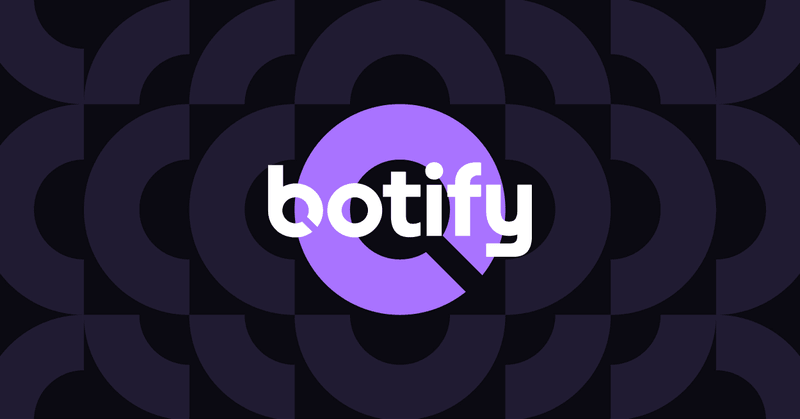
As they do a few times every year, Google just announced a broad core algorithm update -- the May 2020 Core Update.
Later today, we are releasing a broad core algorithm update, as we do several times per year. It is called the May 2020 Core Update. Our guidance about such updates remains as we've covered before. Please see this blog post for more about that:https://t.co/e5ZQUAlt0G
-- Google SearchLiaison (@searchliaison) May 4, 2020
You may be wondering whether you were affected and what action you might need to take in response, so we put together some guidance.
What are core algorithm updates?
Google is always working to improve the quality of their search results. In fact, they release one or more changes every day. However, those changes usually aren't noticeable.
Sometimes, Google will also make changes targeted at some specific criteria, such as speed or mobile-friendliness. When updates are specific and require webmasters to make some sort of change in preparation, Google will announce these ahead of time.
Core updates are different.
Google's core algorithm updates happen just a few times every year. They're more significant than the daily tweaks Google releases and typically produce widely noticeable effects. Core updates also don't target anything specific.
According to Google:
"There's nothing in a core update that targets specific pages or sites. Instead, the changes are about improving how our systems assess content overall. These changes may cause some pages that were previously under-rewarded to do better."
So, what was the May 2020 Core Update about? Like every core update, it was about Google getting better at determining what pages provide the best answer to each query.
A brief history of algorithm updates
Google has been updating its algorithm for a long time, and the algorithm updates of today look a lot different than Google's early algorithm updates.
Some of the main differences include:
- Google communication: If you look even as recently as ~2018, you'll see plenty of chatter about "unnamed" or "unconfirmed" updates. Historically, Google was somewhat silent about updates, which led to a lot of SEO speculation. Now, Google preemptively announces core updates and will let webmasters know ahead of time if there's a specific action they need to take to prepare.
- Specific tactics vs. broad quality: Many of Google's past updates targeted specific tactics. For example, they might roll out an update to fight webspam, like link schemes (Penguin) or low-quality content (Panda). Now, many of Google's updates are more broadly about improving the quality of search results overall.
- Punitive vs. rewarding: There's also been a substantial shift in the way Google talks about algorithm updates. Google has always sought to rank relevant, high-quality results. Earlier on though, they made a lot of punitive updates to accomplish this. Now, updates focus on rewarding good, relevant content. Sites that perform worse after an update may not have done anything wrong, but rather just aren't the best answer anymore.
- Sitewide vs. specific keyword/URL combos: In the past, there was often more of a sweeping quality to Google algorithm updates. Now, the best way to understand how an update influenced your performance is to look at specific keyword/URL combos.
How long does it take algorithm updates to roll out?
It can take Google up to two weeks to fully roll out a core algorithm update.
For those who have asked, the update is mostly done, though as with any core update, it may take to two weeks to fully complete.
-- Google SearchLiaison (@searchliaison) January 16, 2020
That means it's a good idea to stay vigilant and monitor your rankings and organic traffic until about May 18th to see how this update may have affected your site.
When was the last Google algorithm update?
The last core algorithm update, prior to the May 2020 Core Update, was the January 2020 Core Update.
Later today, we are releasing a broad core algorithm update, as we do several times per year. It is called the January 2020 Core Update. Our guidance about such updates remains as we've covered before. Please see this blog post for more about that:https://t.co/e5ZQUA3RC6
-- Google SearchLiaison (@searchliaison) January 13, 2020
Like the May 2020 Core Update, this one was about Google getting better at rewarding the pages that provided the best answer to each query.
We evaluated 280 sites in the e-commerce, publisher, and classifieds verticals to better understand the January 2020 Core Update. You can read the findings here.
How do I know if I was affected by the May 2020 Core Update?
It's likely that your site's performance in search engines was affected in some way, but uncovering exactly how you were affected can be tricky.
Google core updates aren't punitive, like in the past where an entire site or section of a site might get penalized, leaving it unable to rank well in search results.
Core updates mean that Google got better at serving relevant answers to specific queries, meaning that some of your pages may have previously been under-rewarded and are now ranking better. It also means that some of your pages may have been ranking well for queries they really weren't a great answer for, and Google has now given the page a more appropriate, lower rank position.
This is exactly the type of movement we saw during our January 2020 Core Update analysis. Lots of pages in our corpus moved up in the rankings and many moved down.
So how do you figure out what improved and what declined because of the May 2020 Core Update? We recommend two main courses of action.
Segment your pages & queries
Segmentation is a necessary step to take before performing any SEO analysis, especially if your site comprises thousands or even millions of pages.
But what is segmentation?
Essentially, it allows you to group your pages or group your keywords into logical buckets. For example, you could create a segment for all the blog pages on your site. Or, you could create a segment for your informational intent keywords.
Segmentation allows you to drill down and pinpoint the root of problems more easily than looking at thousands of pages and/or keywords all at once.
Doing so, you may find that your product pages are ranking largely the same, but your article pages are trending down. From there, you can drill down to find specific URL/Keyword combos that are performing worse after the update.
From there, we recommend checking for seasonality.
Look at seasonality
You may have detected a dip in average position or clicks/traffic around the same time as the May 2020 Core Update, but do you experience a similar dip every May?
That's something only year-over-year (YoY) metrics can tell you.
We recommend pulling up your keyword data for a specific segment (or even a specific page, if you're getting really granular!) and comparing it to the data from the year prior. From there, you'll be able to detect whether it's expected seasonality or possibly the result of a core algorithm update.
What should I do if I think my site was hit by an algorithm update?
If, after diving into your data in the way we just described, you think you were negatively affected by the May 2020 Core Algorithm update, we recommend approaching the situation this way:
If this URL is ranking worse for this query, it's because Google has determined another URL provides a better answer for that query. What pages are now ranking well for that query, and what can I learn from them about how I need to improve my own page?
Google has also provided a list of 20 questions you can ask yourself about your content. They exist to help you understand where you might need to improve the quality of your content. We also have a guide that walks you through how to evaluate the quality of your content. Both can help you mitigate the risk of being negatively affected in future updates.
After the last core update, we also had an in-depth look at the data and a tactical, insightful discussion with Walmart SEO Tim Resnik and T-Mobile SEO Shawn Huber. You can watch that conversation in its entirety here.

.svg)



.svg)

.svg)
.svg)

